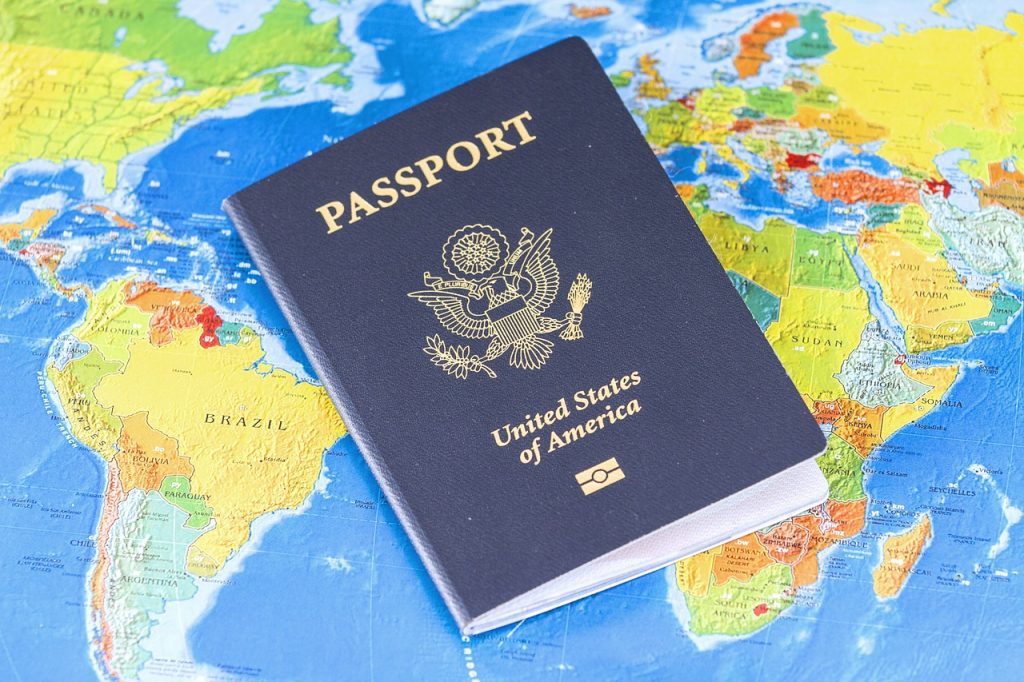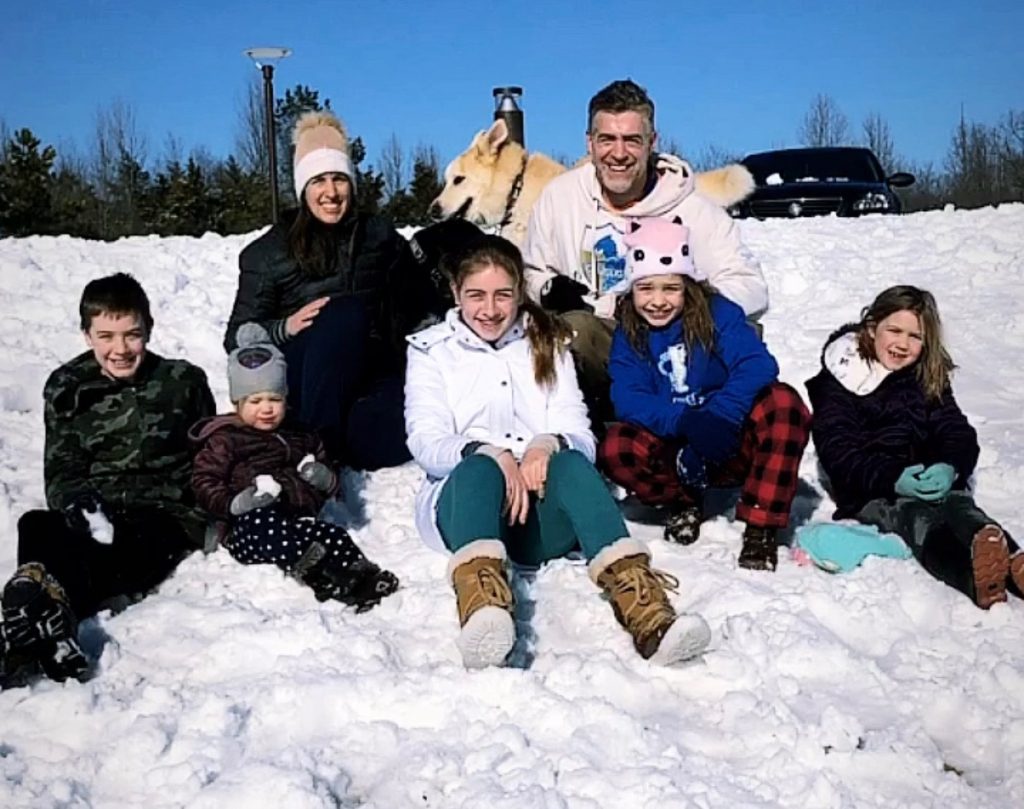We are a traveling family. We love to get on an airplane and see other cities, whether they be domestic or international. Most of the time we take our kids on our adventures, but sometimes it's just me and my husband. While quality, kid-free time is essential to any marriage, during our away time, there's often a *tingling* in the back of my mind -- that elusive, "WHAT IF SOMETHING HAPPENS TO US AND WE DON'T HAVE WILLS?!" question.
 And this question might happen even if you don't travel by air. Maybe you and your spouse are simply on a date night and you worry that you both might be in a fatal car accident, leaving your kids without both parents.
And this question might happen even if you don't travel by air. Maybe you and your spouse are simply on a date night and you worry that you both might be in a fatal car accident, leaving your kids without both parents.
But, as gruesome as this question may sound, it leaves another one too: What kind of legacy am I leaving my children?
First Things First : Creating a Will
Wills don't have to be complicated {but sometimes they are}. They can simply be a signed piece of paper telling your loved ones who receives what in the case of your death.
When our oldest was born, we had a will created, naming her as the beneficiary of our "estate" in the case of death. If Ryan died, I received everything and visa versa. But in the case of both of us passing away, everything we owned, as well as our life insurance benefits, would go to Ali. But then life happened. And we added 4 more kids. And yikes, we realized that if something happened to us today, that our original paperwork we created still stood. So sorry kids, we were too cheap to update the paperwork so older sis gets it all (I'm sure she would've LOVED that).

We thought we should just update the original, but once we met with our new lawyer, Hillary, of Harkavy Shainberg Kaplan, she explained how easy it was to start over and create brand new wills! She first emailed us a document that contained all sorts of money questions: what debt do we still have, do we have life insurance, do we own other things of value, etc. We quickly learned that having an estate plan is more than just having a will and naming who gets your assets. With Hillary’s help, we were able to create a trust for our children, powers of attorney for healthcare and finances, and living wills.
Living Wills + Power of Attorney
The name “living will” is a bit of a misnomer, because this is the document where you determine your end-of-life choices.
There are two sections to this living wills document. In the first section, we were able to choose whether we wanted to be kept alive via artificial nutrition. Essentially, making the choice to “pull the plug” or not. In the second section of the document, we were able to choose whether we wanted to be organ donors. These are not fun conversations to have, but it’s so important to get this done now, because if you someday need it, your wishes need to be clear.
A power of attorney is where you pick someone to essentially step into your shoes and make decisions if you become unable to do so. We finalized two powers of attorney: a general one for legal and financial decisions and one for healthcare decisions. The first power of attorney is used in a situation where you may become unable to make your own legal decisions, pay your own bills, or sign your own contracts. For example, a family member with dementia. The second document is for situations where you become unable to make your own healthcare decisions. For example, if you are in a car accident and fall into a coma, this person will be able to make any necessary medical decisions for you. For these documents, I put Ryan as my "attorney in fact" and vice versa. We then each named one other person in case we are unable to be attorney in fact for each other.
Something Hillary was able to do for us that we didn’t think about previously was creating powers of attorney for the kids. We have blank powers of attorney for each child that we will use when we leave town and the kids are in the care of a family member or friend. All we have to do is sign and notarize the form and leave it with the caretaker. Then, while we are out of town, if one of the kids needs to go to the doctor or hospital, or if for some reason the caretaker needs to leave town with the kids, they will be able to do so legally.
Naming Guardians
Legal Guardians are people who you trust to raise your child(ren) in the case of the death of both parents. They are the people who step in and essentially become "mom & dad."
While obviously they can never replace you, you should consider what type of home you want your children to go to. When choosing a couple (or single guardian), think about their morals, values, and household rhythm. Other questions to consider include:
- Do they already have kids and if so, what are their ages?
- Are they planning to add to their own family, either biologically or through adoption?
- Can they afford to take your kids?
- Where do they live in the country and do they have a job that moves them often (military, etc)
- Are they even willing? Are both husband and wife on board?
When Ryan and I first had Ali, we were advised to NEVER name grandparents as guardians. We were told that in the case of death of parents, grandparents need to remain in that role -- grandparents. Often kids will need comfort and companionship and the grandparent role remains a vital one in the case of tragedy. Second, age can be a factor. Often the grandparents are older (over 65) and of retirement age. They may have health factors to consider. Can they still drive? Even if they're on the younger side, they've already raised their kids.
But obviously you need to have a strong relationship and trust those that will be guardians. Sometimes choosing a grandparent is the best choice for you. Ultimately you're handing over your children to what you consider the next best choice for them as parents. We chose friends who are like family that share in the same faith, education, and moral values that we do and who we know would love our kids dearly.
Let's Talk Money : What are Trusts and Do I Need Them?
As stated earlier, in case something happens to both of us, our kids will equally receive our estate through our wills. This includes our house, bank accounts, and all of our personal effects (basically all of our “stuff”).
However, we also want to ensure that if we were to pass away while the kids are very young, they don’t just get a large sum of money that they can go spend on whatever their little hearts desire. That’s where a children’s trust comes in.
The children’s trust will only come into play if both Ryan and I died before our children are a certain age. For us, we chose 35. Until the kids are 35 years old, their money will remain in a trust (or "slush fund" if you will). When they turn 35, they are granted access to their money and can either liquidate it or leave it in the trust accounts.
Along with naming a guardian to care for our children if we passed away, we named a "trustee." The trustee is someone who will manage the money for the children or who will manage their trust. The goal of the trust is to contribute to the education, health, and welfare of the children. The trustee is not to just dole out money to the children whenever they want it. We chose two different people, so in our case, our guardians will be asking our trustee to issue them money. We intentionally chose 2 different people.

We also learned that the money is not just given to the children equally either (remember we have 5!). Hillary set up something she called a “pot trust,” where until the youngest child is 23 years old, there will be one trust account for all the children. For example, if Paige needs braces, the trustee could use money from the trust to pay for those braces. But that doesn’t mean that the trustee will cut a check to the amount equivalent to the braces for the other four kids! When the youngest child turns 23, then trust will get divided into five equal shares, one for each kid. At that point, they will each have their own trust: the Ali trust, the Asher trust, and so on. Then, when each child turns 35, they are granted access to "their" money.
Do you have and your partner have wills, living wills, guardians named, and trusts created?
_____________________________________________________________
 Hillary Samuels is a native Memphian, specializing in Estate Planning and Family Law at HSK. She and her husband had their first baby in early 2022. After their daughter was born, Hillary realized how important it was to finalize their wills and other estate planning documents. She is currently accepting new clients, and you can reach her at hsamuels@harkavyshainberg.com or at 901-866-5333.
Hillary Samuels is a native Memphian, specializing in Estate Planning and Family Law at HSK. She and her husband had their first baby in early 2022. After their daughter was born, Hillary realized how important it was to finalize their wills and other estate planning documents. She is currently accepting new clients, and you can reach her at hsamuels@harkavyshainberg.com or at 901-866-5333.
Mention Memphis Mom Co and get $150 off your estate plan package!







